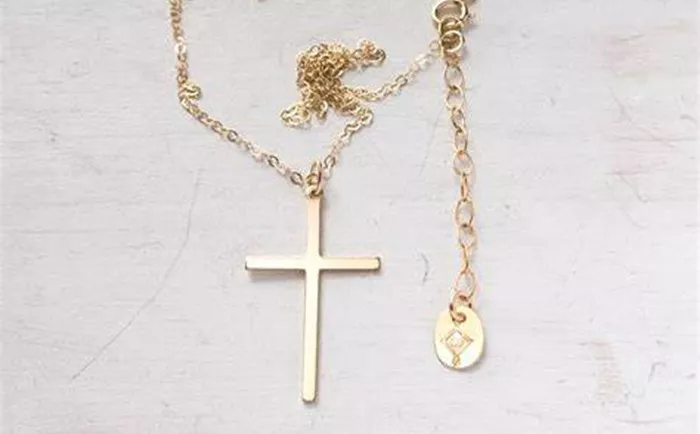The question of whether Muslims can wear cross necklaces is a complex topic that intersects religion, culture, and personal choice. The cross is a significant symbol in Christianity, representing the crucifixion of Jesus Christ and his resurrection. For many Muslims, wearing a cross necklace can provoke discussions around faith and identity. This article explores the various perspectives on this topic, considering religious teachings, cultural implications, and individual choices.
Understanding the Symbolism of the Cross
In Christianity, the cross symbolizes the sacrifice of Jesus Christ for humanity’s sins. It serves as a reminder of the belief in redemption and eternal life through faith in Christ. For Christians, wearing a cross necklace is an expression of their faith and devotion.
For Muslims, the cross does not hold the same significance. Islam teaches the concept of Tawhid, which emphasizes the oneness of God (Allah) and rejects any form of association with Him. Consequently, some Muslims view the cross as a symbol of a different faith and may feel it conflicts with their beliefs.
Islamic Teachings on Wearing Symbols
Islamic teachings regarding wearing symbols from other religions can vary among scholars and communities. Here are some key points to consider:
Prohibition of Wearing Religious Symbols
Many Islamic scholars believe that wearing symbols associated with other religions is inappropriate. This viewpoint stems from the idea that Muslims should maintain a clear distinction between their beliefs and those of others. For instance, some may argue that wearing a cross necklace could imply an acceptance of Christian beliefs, which may conflict with Islamic teachings.
Respect for Other Religions
Conversely, some scholars argue that showing respect for other religions is essential in a diverse world. In this context, wearing a cross necklace could be seen as an act of goodwill towards Christians or as a sign of interfaith solidarity. Such perspectives emphasize tolerance and mutual respect among different faiths.
Cultural Considerations
The cultural context plays a significant role in determining whether Muslims wear cross necklaces. In some regions, particularly where Muslims and Christians coexist, the lines between religious symbols can be blurred.
Interfaith Relationships
In multicultural societies, interfaith relationships are becoming more common. Muslims in such environments may choose to wear a cross necklace as a symbol of love or connection to their Christian partners. This choice often reflects personal feelings rather than religious beliefs.
Fashion and Trends
Fashion trends also influence the wearing of religious symbols. In recent years, some fashion designers have incorporated cross motifs into their collections. This trend can lead to individuals wearing cross necklaces for aesthetic reasons, without any religious connotation. For some Muslims, this may create a space where they feel comfortable wearing such symbols, especially if they view it as a fashion statement rather than a religious one.
Personal Choice and Belief
Ultimately, the decision to wear a cross necklace is a personal one. Many Muslims may have differing opinions based on their beliefs, cultural upbringing, and individual circumstances.
Reflecting Personal Identity
For some Muslims, wearing a cross necklace may represent a personal connection to a Christian friend or loved one. This choice could signify friendship or solidarity rather than religious endorsement. In this way, the necklace serves as a reminder of the values of love and acceptance rather than a symbol of faith.
Navigating Cultural Identity
Muslims living in non-Muslim-majority countries may find themselves navigating complex cultural identities. In these situations, wearing a cross necklace could reflect their desire to connect with the broader community. It can serve as a bridge between cultures, fostering understanding and dialogue.
Responses from the Muslim Community
The Muslim community has diverse opinions on this topic, reflecting a range of beliefs and practices. Here are a few notable responses:
Support for Wearing Cross Necklaces
Some Muslims may feel comfortable wearing cross necklaces as a form of cultural expression or personal choice. They may argue that the intention behind wearing the necklace is what matters most. If a Muslim wears a cross necklace with respect and without compromising their beliefs, they may feel justified in their choice.
Opposition to Wearing Cross Necklaces
On the other hand, many Muslims may express strong opposition to wearing a cross necklace. They may believe that such actions could be seen as undermining their faith. For these individuals, maintaining a clear distinction between Islamic beliefs and symbols from other religions is essential.
Seeking Guidance from Scholars
Muslims contemplating wearing a cross necklace may benefit from seeking guidance from religious scholars. Engaging in discussions with knowledgeable individuals can provide clarity and help individuals navigate their feelings and beliefs regarding religious symbols.
The Role of Personal Reflection
Personal reflection is crucial when considering the implications of wearing a cross necklace. Muslims should take the time to evaluate their intentions, beliefs, and the cultural context surrounding their decision.
See also: What Is The Meaning Of Cross Necklaces
Conclusion
In conclusion, the question of whether Muslims can wear cross necklaces is not straightforward. It involves religious teachings, cultural contexts, and personal beliefs. While some Muslims may feel comfortable wearing a cross necklace as a form of self-expression or interfaith solidarity, others may see it as contradictory to their faith.
The decision to wear such a symbol ultimately lies with the individual. It is essential for Muslims to reflect on their beliefs, seek guidance from trusted sources, and consider the cultural implications of their choices. Regardless of the decision, respect and understanding for differing perspectives within the Muslim community will remain vital as individuals navigate their identities and beliefs in a diverse world.
Related topics:

